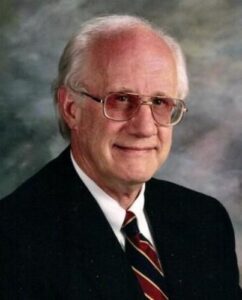 On Nov. 4, 2022, the world lost a learned professor, a dedicated doctor, an inquisitive scientist, an adept clinician and, above all, an epitome of Athena’s representation of Mentor in Homer’s Odyssey.
On Nov. 4, 2022, the world lost a learned professor, a dedicated doctor, an inquisitive scientist, an adept clinician and, above all, an epitome of Athena’s representation of Mentor in Homer’s Odyssey.
Robert W. Lightfoot Jr., MD, had come a long way. Born in 1937, toward the end of the Great Depression, in Nashville, Tenn., he was the son of a Louisville and Nashville Railroad executive father and a supportive mother. Fast-forward to 1990, when he chaired and spearheaded the ACR’s first efforts at guideline writing, and on to 2002, when he was named an ACR Master.
Education & Career Path
Starting his education in public school, Robert showed extraordinary talent for thinking and communicating even at an early age, earning a scholarship to a prestigious private school in Nashville.
After completing his undergraduate and medical school work at Vanderbilt University, Nashville, Tenn., he headed out of state to Columbia University in New York for his intern year and second year of residency before returning to Vanderbilt for his third year of residency. He ended up back in New York the following year for his rheumatology fellowship at Columbia University. After finishing fellowship, he became an instructor in medicine at Columbia University.
In August 1966, Dr. Lightfoot enlisted in the U.S. Army Medical Corps, serving to July 1968. Upon his return from service, he passed the internal medicine board examination and followed his mentor, Charles L. Christian, MD, to the Hospital for Special Surgery, New York, where he became an assistant professor of medicine at Cornell University.
In 1972, Dr. Lightfoot sat for the inaugural rheumatology board examination. In 1976 he became chief of rheumatology at the Medical College of Wisconsin, and in 1984 he became a full professor of medicine there. He was elected to the National Lupus Hall of Fame by the American Lupus Society in 1987.
In 1987, Dr. Lightfoot moved to Kentucky to head the Division of Allergy, Immunology and Rheumatology at the University of Kentucky (UK), Lexington. Here he would settle in. It was where his children grew up, where he kept bees, took up sailing, played tennis with his wife and cared for her after she suffered a stroke.
Dr. Lightfoot served as internal medicine program director at UK from 1992 until 2003. He remained as enthusiastic about teaching as the day he became an instructor at Columbia University. After briefly retiring three separate times from UK, he returned to clinical teaching, and continued until the day before he passed away.

